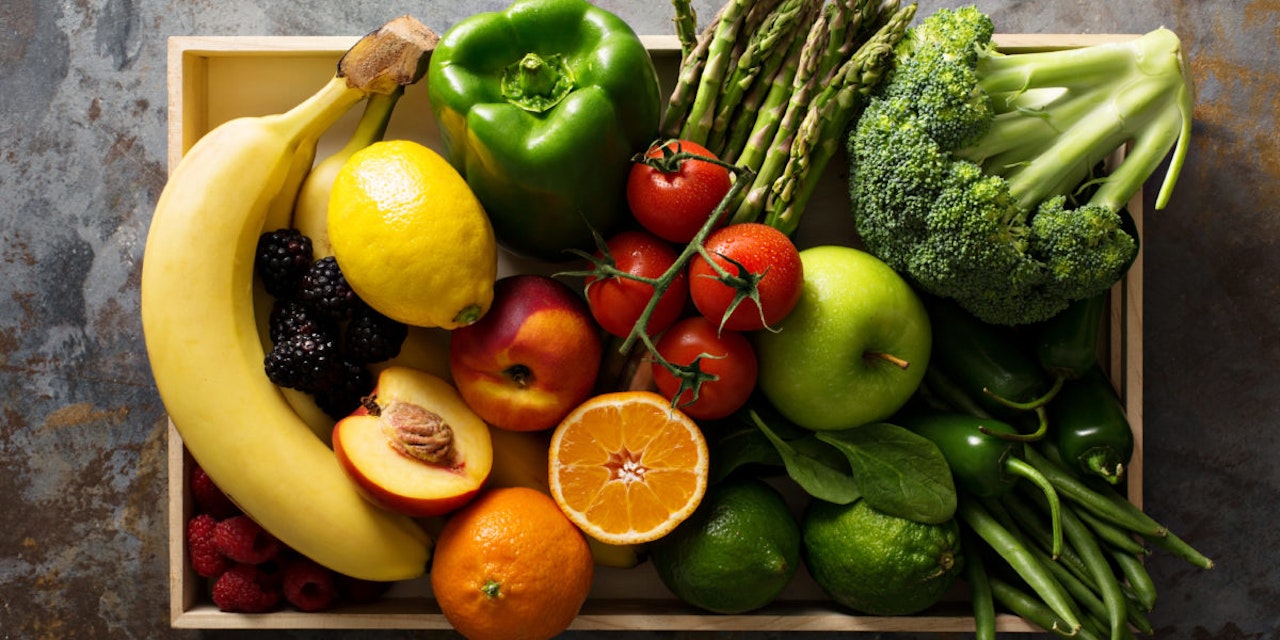Counting Macros in Fruits and Veggies
When on a macro tracking diet, fruits and veggies can have more of an impact on your health than you realize. Read on to find out how.
- Published: 5/16/2018
- Categories:
- 3 min. read

- Published: 5/16/2018
- Categories:
- 3 min. read
There’s no denying the extensive health benefits of fruits and vegetables. However, these nutritious foods can have a big effect on your macro intake without you realizing it.
The Myth of “Free” Foods
Many people believe that since they’re incredibly healthy, fruits and vegetables are essentially “free” when it comes to your diet. After all, fruits and vegetables come packed with vitamins, minerals, antioxidants, and fiber — and they don’t have many calories. Though fruit contains natural sugars, many people believe this sugar “doesn’t count” because it’s natural.
While fruits and veggies are very healthy, the macros in fruit and vegetables add up! You need to accurately account for all the food you’re eating. Healthy food still has calories, and when you eat more calories than you burn, you could gain weight. Tracking macros will help you better understand how every food you eat affects your diet plan.
The Effects of Fruits and Vegetables
Eating a lot of fruit will affect your daily macro intake. Vegetables don’t affect this as much, but eating a large number of vegetables will have an effect! Though the sugar in fruit is natural, sugar is sugar. No matter where it comes from, it still affects your blood glucose levels in addition to altering your macros count.
Vegetables, on the other hand, supply some protein and even some fat which all adds up! Starchy vegetables, in particular, could bring in an extra 100 or 200 calories in a day if you’re eating 5 or 6 servings. This changes your calorie deficit, and if you don’t account for the change, your results could slow down. If you want to lose weight in a sustainable way, precisely tracking macros is key.
Tracking Macros Can Help You Lose Weight
Whether you’re looking to lose weight or just improve your health by making sure that what you eat is balanced, counting macros allows you to use the foods you eat in a smart way. The three macros: fat, carbs, and protein affect you differently.
For example, foods that are high in protein help with muscle growth and keep you full for longer. More muscle, in turn, helps you burn more calories. When you don’t track veggie and fruit macros, you’re ignoring a portion of your daily food intake.
These numbers still matter even if you’re not getting tons of calories from fruits and vegetables. One cup of raw spinach contains 8 calories, 1g each of carbs and protein, and 0g of fat. One cup of raw kale, on the other hand, contains 33 calories, 6g of carbs, 3g of protein, and 1g of fat.
In other words, these foods are not free; in fact, they can significantly alter your total macros over the course of a day. If you’re wondering to yourself, “how can I track my macros?” — our app makes it easy to account for everything you eat in a day, including all those fruits and veggies.
Fruits and vegetables are an important component of any healthy and balanced diet. By tracking the macros you bring in from fruits and veggies, you’ll more accurately keep tabs on your macros count.
All of the content and media on Lifesum is created and published for information purposes only. It is not intended to be used as a substitute for medical advice or treatment. Users should always consult with a doctor or other health care professional for medical advice. If you have or think you are at risk of developing an eating disorder, do not use the Lifesum app and seek immediate medical help.